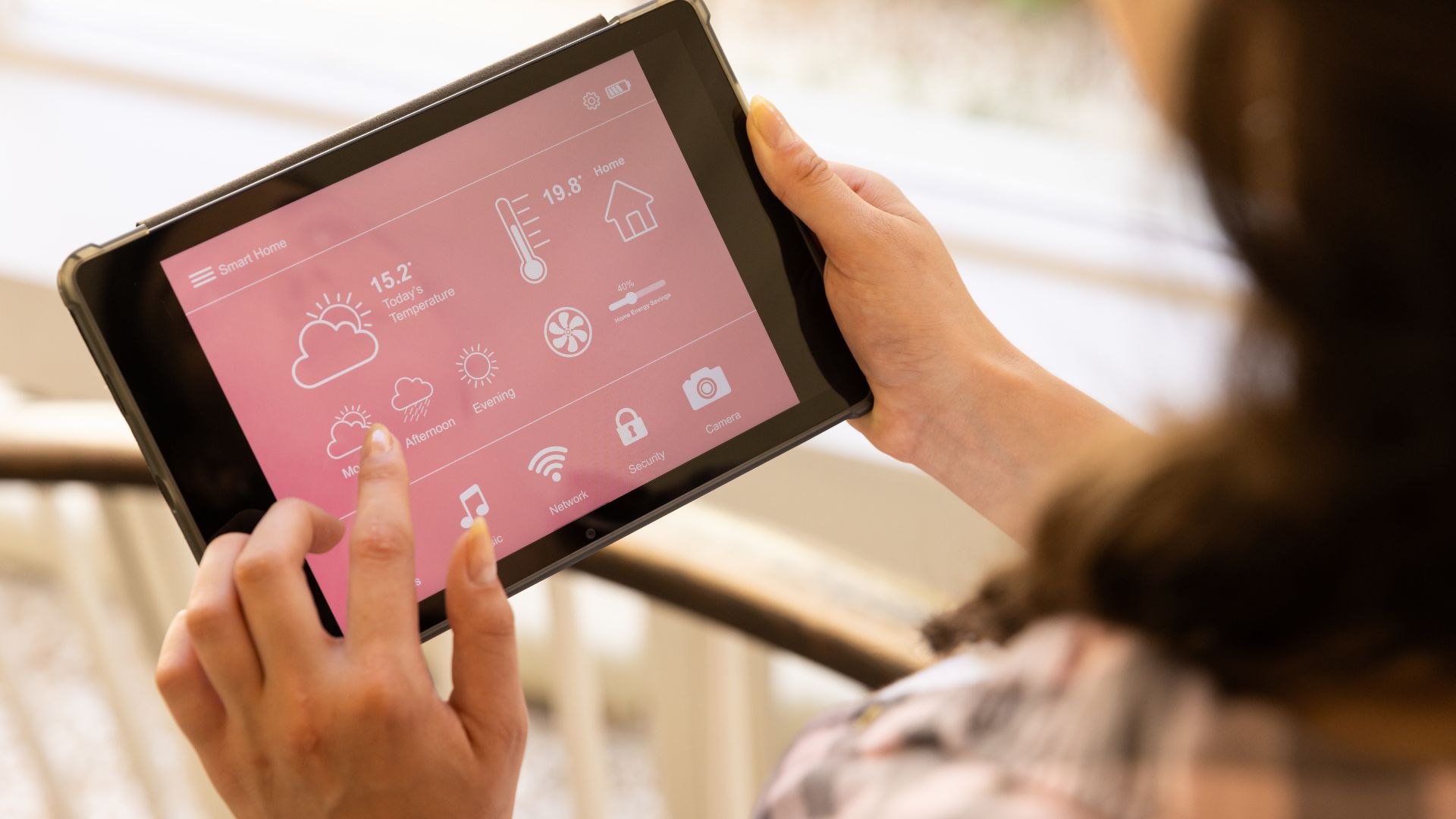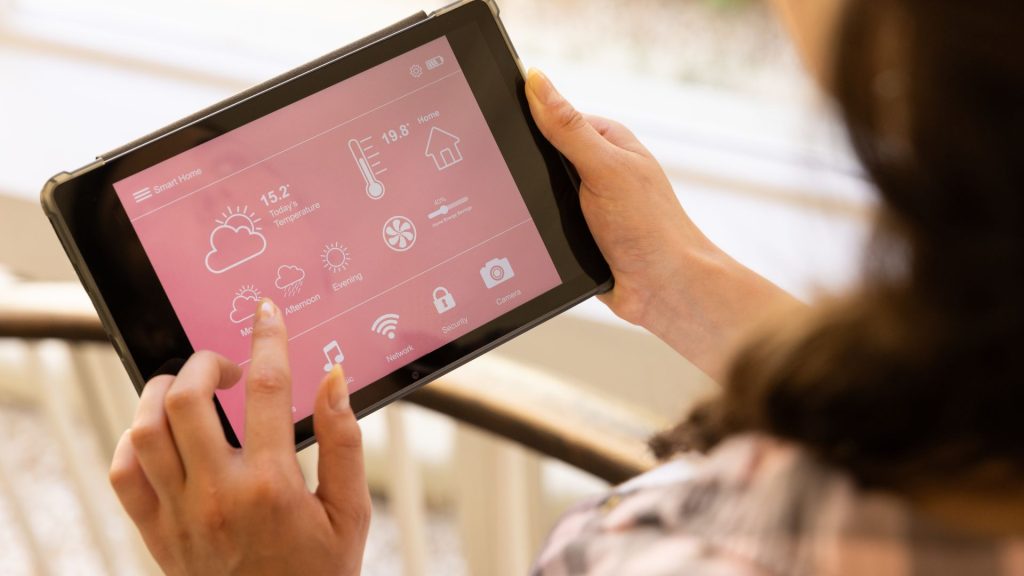How AI is Revolutionizing Smart Home Technology

How AI is Revolutionizing Smart Home Technology
#AI #SmartHomes #Innovation

Introduction
The concept of smart homes has evolved rapidly over the past few years, largely due to advancements in Artificial Intelligence (AI). AI is not just making homes smarter; it’s transforming the way we interact with our living spaces. From intelligent climate control to security systems that learn your patterns, AI is at the forefront of creating homes that are more efficient, comfortable, and secure.
This article explores how AI is revolutionizing smart home technology, the benefits it brings, and the future trends that will continue to shape our living environments.
AI Integration in Smart Homes
AI technologies are being integrated into various aspects of smart homes to enhance functionality and user experience:
Voice Assistants
AI-powered voice assistants like Amazon’s Alexa, Google Assistant, and Apple’s Siri enable users to control devices, access information, and manage schedules using natural language commands.
Smart Appliances
AI is embedded in appliances like refrigerators, washing machines, and ovens, allowing them to optimize operations, suggest settings, and even order supplies automatically.
Home Security Systems
AI enhances security through facial recognition, anomaly detection, and predictive analytics, providing real-time alerts and automated responses to potential threats.
Energy Management
Intelligent thermostats and lighting systems use AI to learn user preferences and habits, optimizing energy consumption for cost savings and environmental benefits.
Home Entertainment
AI curates personalized content recommendations for music, movies, and television, enhancing the entertainment experience based on user preferences.
Benefits of AI in Smart Homes
Integrating AI into smart home technology offers numerous advantages:
- Enhanced Convenience: Automation of routine tasks saves time and effort, making daily life more convenient.
- Improved Energy Efficiency: AI optimizes energy use, reducing utility bills and environmental impact.
- Increased Security: Advanced security features provide peace of mind through constant monitoring and rapid response.
- Personalization: AI learns user preferences to tailor the home environment, enhancing comfort and satisfaction.
- Accessibility: Voice and gesture controls improve accessibility for individuals with disabilities or mobility issues.
Key AI Technologies in Smart Homes
Several AI technologies are instrumental in revolutionizing smart home technology:
Machine Learning
Machine learning algorithms enable devices to learn from user behavior and adapt accordingly, improving functionality over time.
Natural Language Processing (NLP)
NLP allows voice assistants to understand and process human language, facilitating seamless interaction between users and devices.
Computer Vision
Computer vision technologies enable devices to interpret visual data, used in security cameras and gesture-controlled interfaces.
Edge Computing
Processing data locally on devices reduces latency and enhances privacy, crucial for real-time applications in smart homes.
Case Studies
Smart Home Company D: Personalized Climate Control
Company D developed an AI-powered thermostat that learns occupants’ schedules and temperature preferences, resulting in a 20% reduction in energy consumption.
Security Firm E: Advanced Home Security
Firm E’s AI-enhanced security system uses facial recognition and anomaly detection to provide proactive security measures, reducing false alarms by 30%.
Appliance Manufacturer F: Smart Kitchen Appliances
Manufacturer F introduced AI-integrated kitchen appliances that suggest recipes based on available ingredients, dietary preferences, and past cooking habits, enhancing the culinary experience.
Challenges and Considerations
While AI brings significant benefits to smart homes, there are challenges to address:
Privacy and Security Concerns
Collecting and processing personal data raises privacy issues. Ensuring data security and user privacy is paramount to gain user trust.
Interoperability
Integrating devices from different manufacturers can be challenging. Establishing common standards is essential for seamless interoperability.
Cost and Accessibility
High costs can be a barrier to adoption for some consumers. Making smart home technology affordable is crucial for widespread adoption.
Technical Complexity
Setting up and managing smart home systems can be complex. User-friendly interfaces and support are necessary to enhance the user experience.
Future Trends in AI and Smart Homes
The future of AI in smart home technology is promising, with emerging trends including:
Integration with IoT
Enhanced integration with the Internet of Things (IoT) will lead to more connected devices and richer data for AI to process.
Augmented Reality (AR) Interfaces
AR will provide new ways to interact with smart home systems, offering immersive and intuitive control options.
AI-Powered Home Health Monitoring
AI will enable smart homes to monitor health parameters, assisting in early detection of health issues and promoting wellness.
Sustainable Smart Homes
AI will play a key role in creating sustainable homes that optimize resource use and reduce environmental impact.
Conclusion
Artificial Intelligence is revolutionizing smart home technology by making our living spaces more intelligent, efficient, and responsive to our needs. As AI continues to advance, we can expect even greater integration of smart home devices, leading to homes that not only react to our commands but anticipate our needs. Embracing AI in smart home technology is transforming the way we live, offering unprecedented levels of convenience, comfort, and security.
The future of smart homes lies in the continued innovation and adoption of AI technologies, shaping living environments that enhance our quality of life and adapt to our evolving lifestyles.



